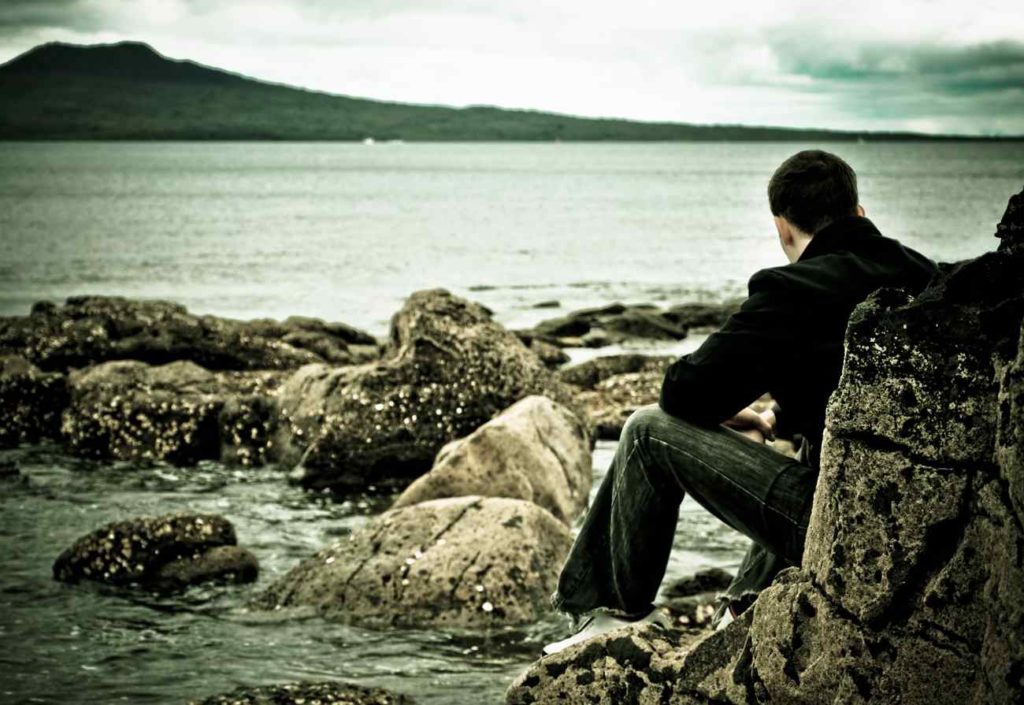Sexually Abused Males and Adult Relationships
By Bill Farrand, MA, LCPC
Are you a male who was sexually abused as a child? Are you in a relationship with a man who was sexually traumatized during his growing years? If so, you are not alone. While the research is somewhat difficult to get a firm handle on, it is currently believed that around 5-10% of the population or 1 in 20 boys are able to recall some form of sexual trauma.
Male Sexual Abuse and Relationships
The topic of childhood sexual abuse is something that is not often discussed; in part because of deep shame that is common among survivors, coupled with legitimate fears of being judged by others. This unfortunate reality means that many men who experienced various forms of sexual trauma keep feelings bottled up – weary of sharing memories and emotions with anyone, including their partners.
Experiences from earlier in life commonly impact how a person relates to another in personal relationships. Sadly, many people believe that survivors of childhood sexual abuse are somehow “damaged goods”. It simply isn’t true. What is true, however, is that various forms of romantic attachment to another can be affected, depending upon the personal and individual dynamics.
While there is no prescribed way that the experience of the abuse will impact the survivor or his relationships, male survivors and their partners have been able to identify six common factors.
Let’s walk through each now.

1. Avoidance of certain people, places or situations
You may notice him leaving the room when some things come on television or changing the subject when specific things are discussed. There may be certain types of people that he stays away from, or there may be parts of his past that he avoids talking about. These are common ways that people try to keep themselves safe and try to hold distressing memories at bay.
2. Bad dreams, being preoccupied and spacing out
He may seem to be in another world and appear disconnected, or distracted. After a traumatic experience, some people can experience flashbacks to the event where the person relives the trauma in the here and now. In the clinical sense, we are talking about PTSD.
Memories of sexual assault for some men can emerge without invitation at any time of the day or night – even while asleep in the form of nightmares. This is very exhausting and can lead to long-term negative health effects.
3. Hyper-vigilance and easily startled
He may be preoccupied with checking doors, windows, avoiding crowds or public transportation, and may become anxious when you or the children are not at home. In context of his experience, this makes perfect sense in terms of his desire to keep himself and his loved ones safe as has experienced what it is like to be unsafe.
4. Trust issues, even with you at times
When a person one is supposed to be able to trust has violated a trust, it can be extremely difficult to take trust for granted in later relationships. Conversely in some cases, he may trust you but nobody else. Intimacy issues are common.
5. Mood swings
It is common for people who have experienced sexual abuse to find that they can swing from feeling happy to angry, to sad, or to other strong feelings. These feelings can come on quickly and without any warning. Intense shifts might not make much sense to the observer and appear to have no external cause.
In reality, these feelings are usually connected to a thought or memory that has come unexpectedly and that brings with it some of the distressing feelings of the original event.
6. Addictive, compulsive, or self-harming behaviors
Sometimes people who have experienced sexual abuse develop behaviors that seem to be self-defeating such as problematic use of drugs or alcohol, gambling, workaholism, compulsive exercise, over-spending, over-eating or consuming very little food or having complex rituals around the quantity and timings of meals. Some survivors struggle with codependency.
Others might be more directly involved in self-harming or obsessing about their bodies’ appearance in various ways. Many of these behaviors are not necessarily harmful in and of themselves, and are even viewed as beneficial or a source of pride.
These activities do have an internal logic to the survivor and are self-soothing, calming, offer a sense of control, and can mask or distract him from his painful feelings. However, these can become problematic when they are used to the extent that the person is not able to incorporate or to manage other aspects of daily life in reasonably balanced ways.
Resources
One of the best ways to gain greater insight into what may be happening with your partner or yourself (should you be survivor of abuse) is to read more about the impact of childhood sexual abuse. I am going to recommend two books that I think you will find useful and in many ways, healing.
The first is entitled: If the Man You Love Was Abused: A Couples Guide to Healing by Brown. This is a very informative read if you are in a relationship with a man who was abused during his childhood years.


Final Thoughts
The behaviors listed above, might have developed as a direct result of being sexually abused or in an effort to manage the trauma. There are other emotional and psychological signs that have not been listed here because in truth – there are just too many to list. What you have read here covered the “biggies”.
One of the things I recommend to individuals who are involved in a relationship with another who experienced childhood sexual abuse is to consider counseling. By talking to a professional who is trained in relationships and knowledgeable on the impact of abuse, you can better understand and support the man you are romantically involved with.
Obviously, if you are a survivor of childhood sexual abuse, receiving counseling is a critical element to your wellness. Some couples opt for relationship therapy as a way of jointly processing some of the emotional dynamics that may be occurring.



